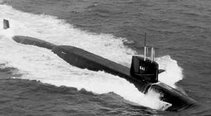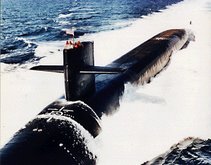The news.telegraph.co.uk has two news articles up "10,000 would die' in A-plant attack on Iran" and "US prepares military blitz against Iran's nuclear sites". Those headlines sound almost like they could have been written before the Iraq war in 2003. Just substitute Iraq for Iran and WMD for Nuclear and you get the idea. The hand wringing has started in the European press over possible American preemptive plans (the Bush doctrine) over the Iranian nuclear weapon aspirations.
The first news report quotes a study done by the Oxford Research Group titled "Consequences of a War (pdf link)" which was written in October of 2002 by Professor Paul Rogers is Professor of Peace Studies at the University of Bradford, about .... (insert drum roll).... you guessed it "Iraq" and then rehashed for a possible conflict with "Iran". Here are some excerpt for the telegraph Iran news piece and the 2002 Iraq paper:
Expanded confrontation.
(The Telegraph - on the 2006 Iran report)The attack would result in "a protracted military confrontation" involving Israel, Lebanon and some Gulf states.
(Oxford Research Group - on Iraq in 2002 ) In such circumstances, and given that Hezbollah militia in Southern Lebanon have recently received some thousands of short-range missiles from Iran via Damascus, Israel might suddenly find its northern cities under attack and would respond with forceful counteraction against militias and Syrian forces in Lebanon.
It's all about oil.
(The Telegraph - on the 2006 Iran report) Iran could still retaliate with suicide speedboats, possibly leading to crippling rises in the price of oil.
(Oxford Research Group - on Iraq in 2002 )Attacks against oil tankers and other aspects of the oil and gas supply chain may be mounted, possibly using surrogate paramilitaries, with the hope of affecting the price of oil.
The rise of anti-American hostility
(The Telegraph - on the 2006 Iran report) Prof Rogers, professor of peace studies at Bradford University, says that American military action would also have a unifying effect on the rule of President Mahmoud Ahmadinejad and exacerbate anti-American hostility in the Islamic world.
(Oxford Research Group - on Iraq in 2002 )Taken with the current and very widespread perception in the region of Israel as a client state armed largely by the United States, and of Saudi Arabia controlled by an excessively wasteful and wealthy neo-feudal elite, a further increase in the anti-American mood in the region and consequent support for oppositional paramilitaries such as al-Qaida is likely to be the longer term consequences of an enforced regime change and possibly even a military occupation of Iraq.
The Telegraph ends the article by trying to credit the Oxford Research Group with predicting the Iraq insugency by saying "In a similar briefing before the invasion of Iraq in 2003, the Oxford group predicted that Saddam Hussein's regime could easily be overwhelmed but that the country would become a hotbed of insurgency." (emphasis added). But the actual report in 2002 was a little more ambiguous:
(Oxford Research Group - on Iraq in 2002 )It is also possible that a paramilitary movement could develop from within Iraq. While there is abundant evidence of the unpopularity of the Saddam Hussein regime, it is certainly possible that internal opposition to US occupation and the subsequent installing of a client regime would result in an evolving insurgency. Internal opposition to the current regime does not equate with the future acceptance of foreign occupation.
So here we are again with a rerun of the old predictions (wider regional conflict, oil crisis, and greater anti-American feelings) without a single printed word on any of the positive results (no regional war, free elections and constitution in Iraq, a greater movement toward freedom across the broader middle east, the lives of millions changed for the better without fear and intimidation from their government) with the overthrow of Saddam. Obviously the Islamofacists who use religion to obtain power and control followers are threatened with recent changes in Iraq and are lashing back with terror tactics.
The Iranian terror state is also threatened with internal descent and the external rising demand of democracy. Iran, like the old Soviet Union, can be put down internal descent for a time with police state tactics, and like Iraq before stall, intimidate and deceive the IAEA and UN over it's nuclear weapons program. However, what the European press needs to understand is that nuclear weapons in the hands of a government that sees terrorism and the killing of innocents as a political tool is likely to use it once they have it. All the hand wringing over American military contingency plans including, the use of Trident SSBNs armed with conventional warheads as stated in the news.telegraph's second news piece, isn't going to change that.
Time is running out and the Iranian terror state knows it, they will become more belligerent just as Saddam did before them.
Sunday, February 12, 2006
Subscribe to:
Post Comments (Atom)









1 comment:
Here we go again! Just wait until our bombing campaign goes on for weeks and we're lectured about scenes of collatoral damage ad nauseum on the nightly news (though our critics will be secretly relieved that we protected Europe and the broader Middle East from the mullahs).
*sigh*
Thanks for the coverage, shipmate.
Post a Comment